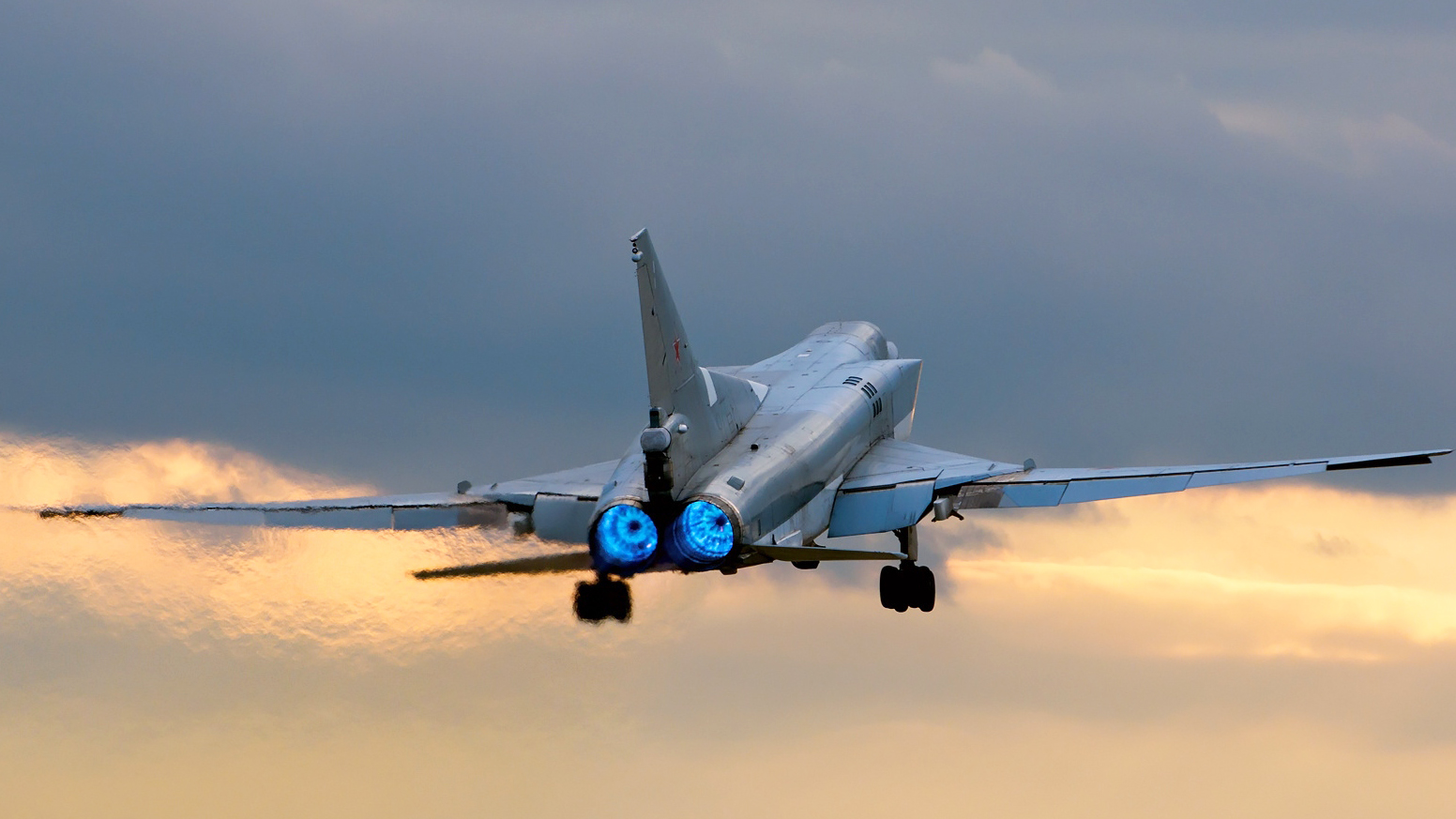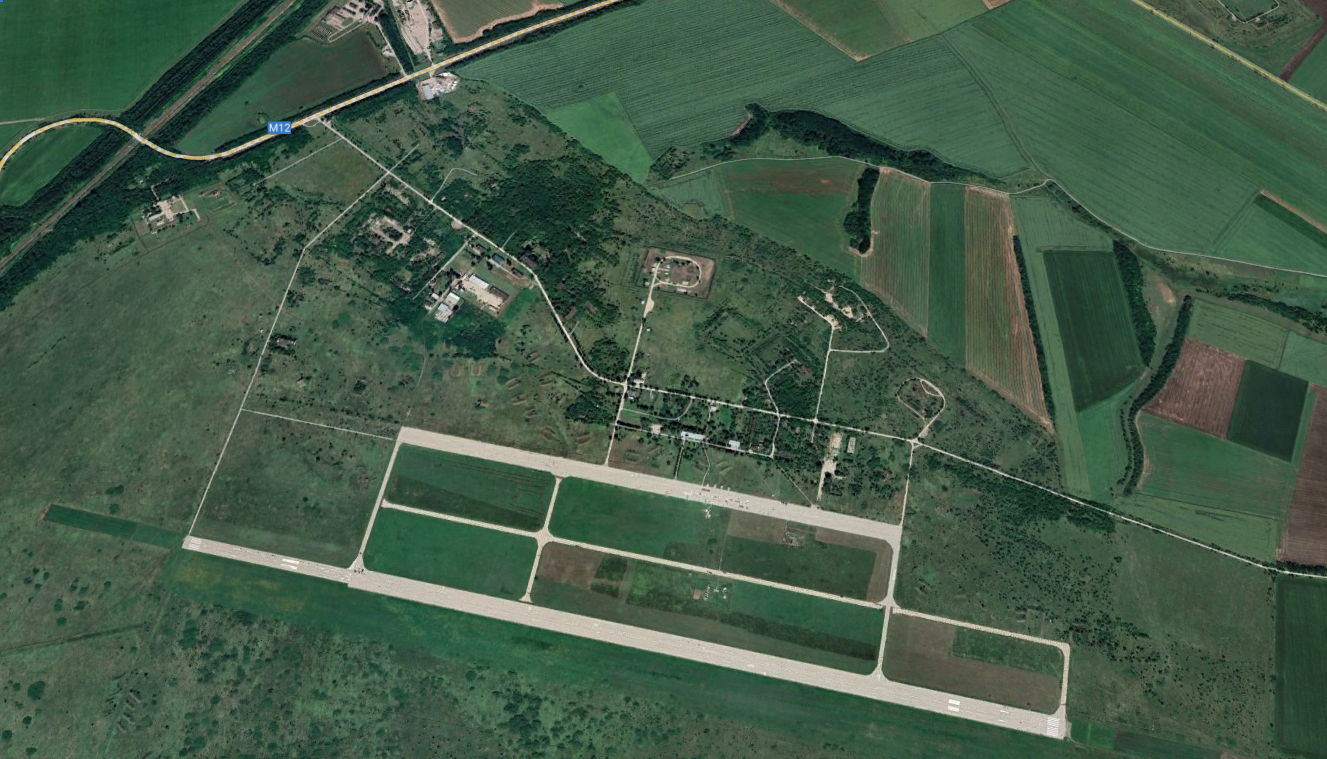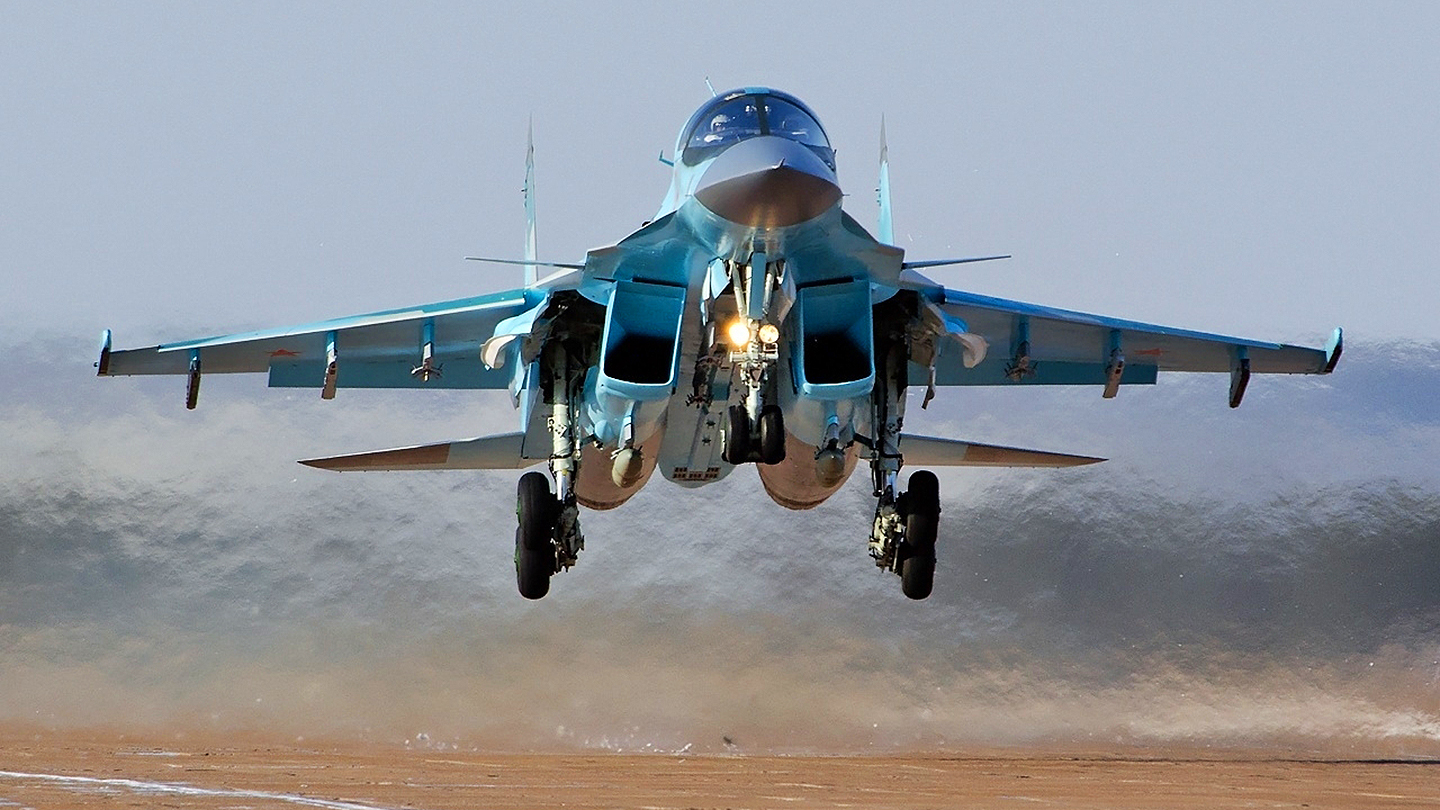An undisclosed number of Ukrainian service members have been charged with treason, the Ukrainian State Security Service (SBU) announced Thursday, after a bizarre plot to convince Russian pilots to steal their aircraft apparently backfired. As a result of the ensuing Russian investigation, its forces launched a “massive missile attack” on Ukraine’s “Kanatove airfield on July 23, 2022.” It killed a commander, wounded 17 airmen, destroyed two fighter jets and caused “significant damage” to the airstrip and several buildings, SBU stated in a release.
Just two days after the deadly attack, Bellingcat Russia investigator Christo Grosev described the plot in a Twitter thread as a “crazier-than-fiction story of triple-agents, fake passports and faux girlfriends.” Bellingcat, he said, was chronicling this plot as it unfolded, via a documentary about “one of the wackiest counter-counter-intel operations of all time.”
It was a tale, he said, that Russia’s FSB security agency falsely accused him of being involved in.
The genesis of this operation was based on a new Ukrainian law offering money to Russians who provide Kyiv with military hardware, Grosev said.
“A team of Ukrainian operatives decided to approach Russian pilots with an offer based on this law,” Grosev wrote. “We found out about the initiative, and assured ourselves a front seat – to make a documentary about this brazen operation.”
He was quick to point out that the operation “was not a project of either SBU or GUR [Ukraine’s Defense Intelligence Directorate]. (If it were, there’d be no way we would – or want to – get access to it). It was organized by maverick ex operatives whom we got to know” via a previous Bellingcat investigation.
“Several Russian military pilots were approached and even sent ‘proof-of-access’ videos from inside their planes, in each case bearing a separate number hand-written on pieces of paper. Some of the footage from the inside of the planes was quite detailed and enlightening.”
The plot, however, went sideways.
“This bizarre mutual-deceit game came to an end when the FSB realized no one will show up at any of the suggested meet-ups (FSB were keen to identify Ukrainian agents), realizing they’ve been burned,” Grosev wrote. “And the Ukrainians realized they’re likely not getting a real pilot either.”
Still, it was a win for Ukraine, Grosev wrote.
“While Russia is presenting today this as a coup for its counter intelligence, in fact the operation was a serious blunder for the FSB, disclosing unintentionally identities of dozens of counter intel officers, their methods of operation, and their undercover assets.”
Last month, Yahoo News took a deep dive into the story about the plot, laying out the complex twists and turns of what the SBU now says was a rogue off-the-books operation that had devastating results.
“Last summer, a group of Ukrainian volunteers, working closely with their country’s intelligence service, apparently came close to persuading three Russian aviators who were in the midst of bombing Ukraine to defect with their warplanes in exchange for $1 million a piece,” according to Yahoo News. “It was a bold, months-long operation, ‘like a movie,’ in the words of one of the Russian marks, a trio of exceptionally well-trained airmen who seemed amenable to betraying their motherland for a sum of money they’d otherwise never see in their lifetimes.”
The plot involved Russian pilots of the Tu-22M3 Backfire-C bombers as well as the Su-34 Fullback strike aircraft and Su-24 Fencer strike aircraft, Yahoo News wrote.

Had this been successful, it could have been a major win for Ukraine and, to possibly a bigger degree, the United States.
Capturing a fully-intact Su-34 would be an intelligence haul, especially for U.S. Foreign Materiel Exploitation programs. The Su-24 could bolster Ukraine’s dwindling fleet, while the Tu-22 would be a major propaganda win and one less to be used to attack Ukraine.
But what “looked like a legitimate plan to switch sides proved anything but,” Yahoo News wrote. “None of the pilots defected in the end. There is strong evidence that most if not all of them were found out by Russia’s Federal Security Service (FSB), one of the successor agencies to the Soviet KGB.”
Russian propaganda “says the whole saga was in fact orchestrated by the FSB from the start,” according to Yahoo News.
But the Ukrainians “insist the FSB only got involved late in the negotiations, after sincere commitments were made by each pilot. Kyiv also maintains its failure to acquire Russian warplanes was nonetheless a mitigated success: It gleaned valuable technical information about Russia’s air force and compromised three military officers, at least one of whom has not flown combat missions since. A complex intelligence operation thus devolved into a remote game of dueling counterintelligence narratives with both sides claiming victory.”
However, there is another twist to this story.
Yahoo News reported that the FSB also claimed a victory here, saying it discovered the location of the Kantatove airfield as a result of uncovering the Ukrainian plot, a narrative that lines up with the SBU version of events.
But in reality, “those airfields had already been bombed since the start of Moscow’s invasion,” Yahoo News reported, citing previous news accounts.

It’s hard to understand what the issue is here with this airfield as its existence is no secret, although precise operations ongoing there could have been leveraged by Russian intelligence. It’s just unclear how the successful targeting of this base was prompted by this allegedly botched operation.
Regardless, the SBU on Thursday said the unraveling of the plot resulted in the deadly attack and that the service-members involved had to be punished.
“Therefore, such actions of individual servicemen, which led to serious consequences, the death and injury of Ukrainian defenders and harmed the country’s defense capabilities, require an appropriate legal assessment,” according to SBU. “Criminal proceedings have been opened under Part 2 of Article 111 (treason) and Part 5 of Article 426-1 (exceeding authority or official powers by a military official) of the Criminal Code of Ukraine.”
We reached out to SBU to see if they could offer more details and explain how the Russians discovered this airfield as a result of the plot after it had already been targeted. And we reached out to Grosev, to check on the status of his documentary on this convoluted tale.
We will update this story with any response provided and if and when the case goes to trial and a verdict is reached.
Contact the author: howard@thewarzone.com
